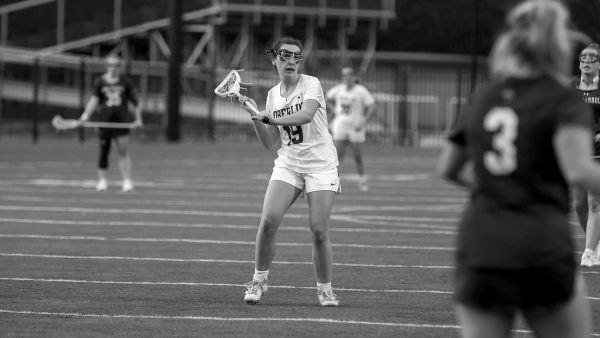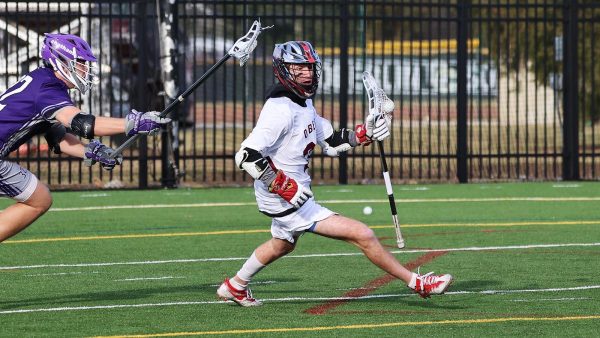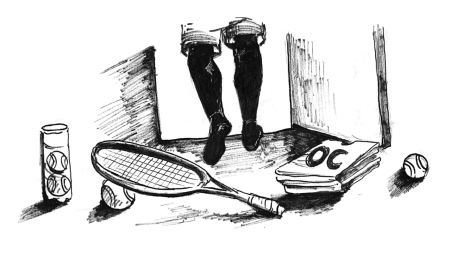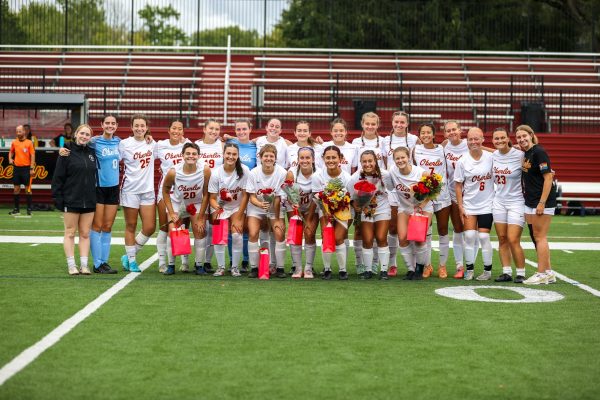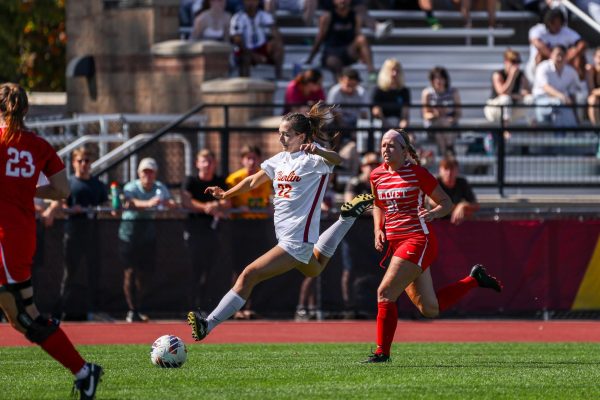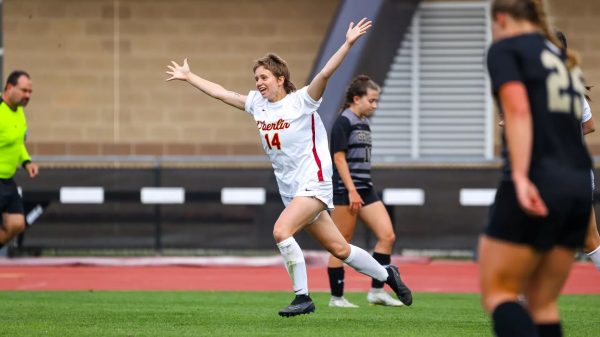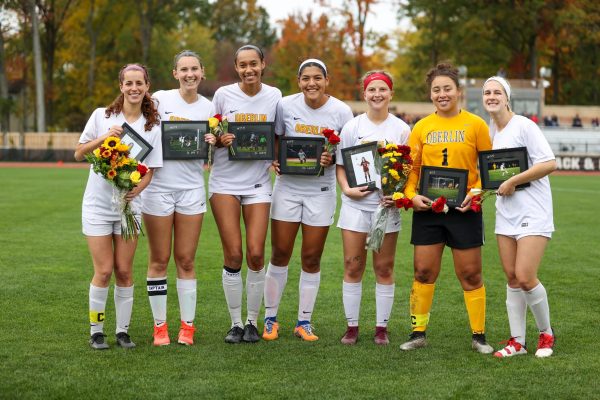OC Athletics Off-Season: The Grind Never Stops
Oberlin’s varsity athletes never stop working. Even after the end of their seasons, athletes continue to practice, work out, and push themselves to refine and perfect their athletic craft. As the semester reaches its final weeks and the weather transitions from fall to winter, sports like soccer and field hockey have come to an end, while winter sports like basketball are just beginning.
Sometimes, off-season conditioning can even be more strenuous than during the regular season — the idea be- ing that this hard work and perseverance will pay off for athletes when their sport comes back the next year. After the season ends, however, athletes normally get one to two weeks for recovery.
Sydnie Savarese, a College third-year and member of the women’s soccer team, knows the importance of taking some time off after a grueling season.
“After our season [ends], it’s all about recovery,” said Savarese. “We tend to take a week off to relax and then get back in the swing of things in terms of conditioning. We start lifting and prepping for spring season so we can stay in shape for the 2020 fall season. We also have indoor practices in Williams [Field House] that are light and fun.”
Oberlin’s varsity athletes must follow protocols during the school year set by the NCAA, which regulates collegiate athletes at over 1,200 North American colleges, as well as numerous conferences and affiliates. Oberlin is a Division III institution, meaning that the school encourages the integration between academic success and competitive athletics, with meaningful non-athletics opportunities. Students who choose Division III play for the love of the game and the opportunity to balance academics and athletics.
During Division III’s offseason, coaches are only allowed to be a part of fifteen practices with an extra day either for practice or competition. These practices are similar to season practices with an emphasis on skill-building and other preparation for the next season.
“For the season coming up I’m really excited; captains’ practices gives us the opportunity to work on team chemistry without the coaches involved,” said Tom Decker, a College third-year and varsity lacrosse player. “In the fall we worked on specific plays and now we can see how we each play naturally in terms of the offense and defensive technique. By concentrating on how we play as a team, this will enable us to focus for [the upcoming] season.”
Zoe Kuzbari, a College second-year and volleyball player, is a defensive specialist who feels off-season is all about individual work.
“During the offseason, we work on technique for volleyball games,” she said. “We focus on individual goals. I think season is all about working as a team and competing with one another, not working on an individual level. We have practices [led by our captains] twice a week and lift twice a week in order to stay in shape.”
Decker also emphasized the importance of the off-season in building stronger team chemistry to capitalize on the successes of the previous season.
“Fall ball went really well [because] a lot of the [first- years] were able to become part of the program athletically and socially,” Decker said. “The [first-years] also made strides and pushed the upperclassmen to work harder and improve our game.”
Even the impending winter does not prevent athletes from practicing. Many outdoor teams utilize Williams Field House, located next to Knowlton Athletics Complex. The half turf field inside Williams allows athletes to train without having to face frigid outdoor temperatures from November through February. Thus, being a varsity athlete does not end when a sport’s season does. Rather, until graduation, varsity athletes of all seasons are constantly focusing and working on their athleticism through rain, snow, and extreme heat, all year around.


